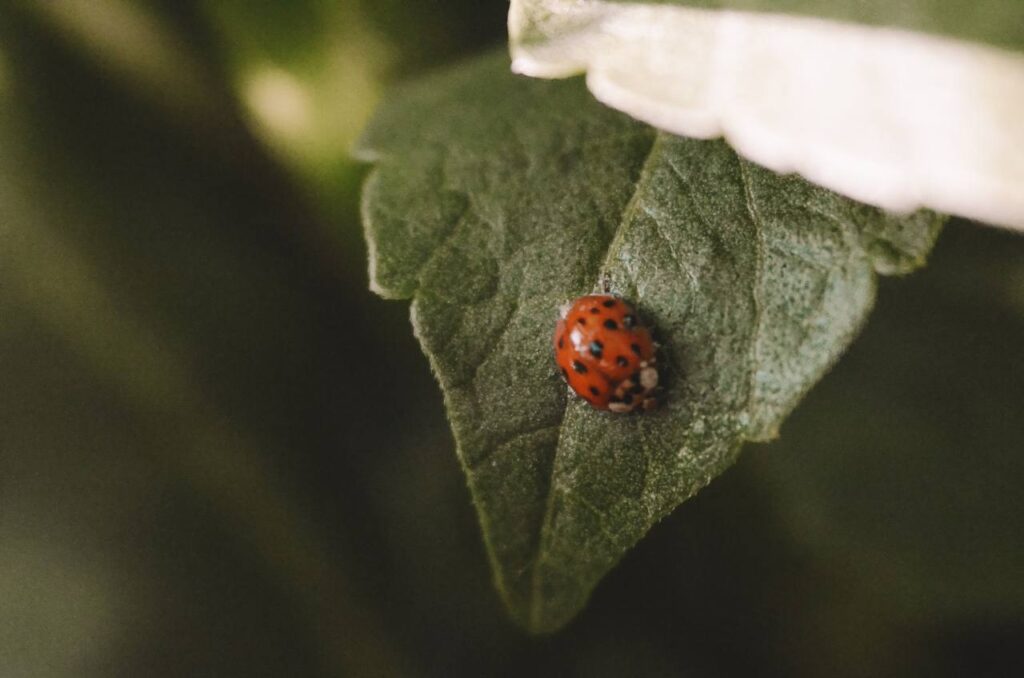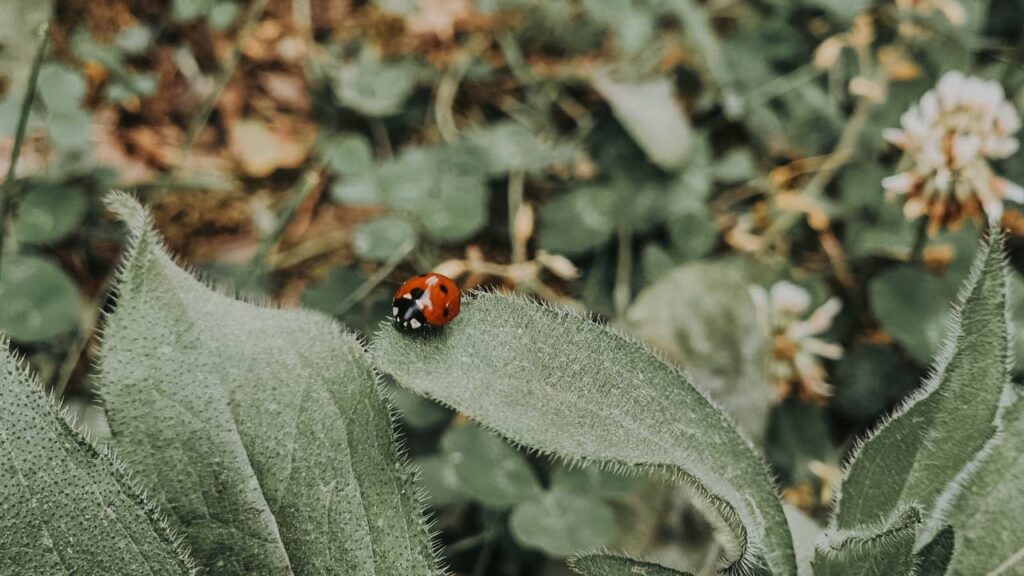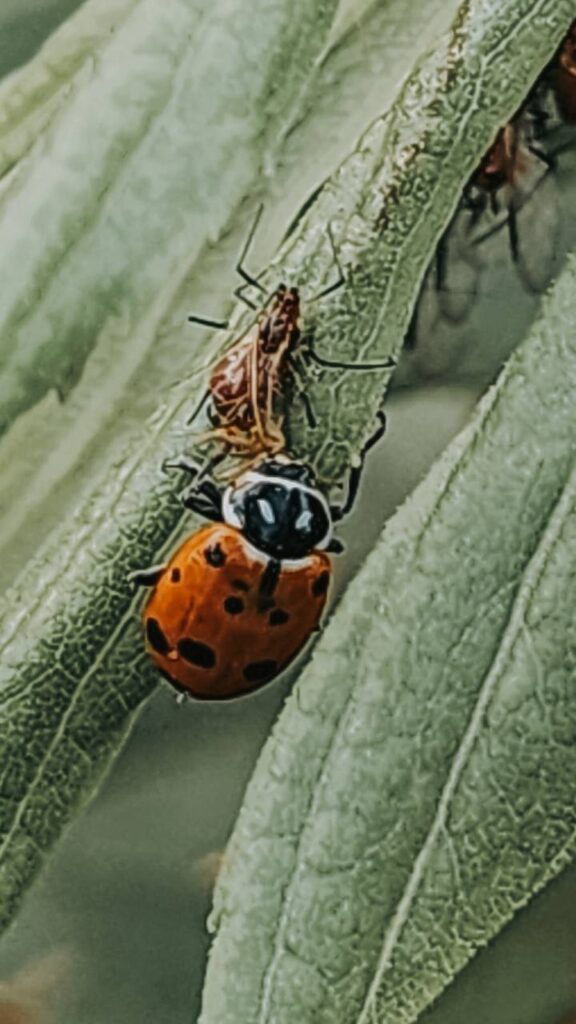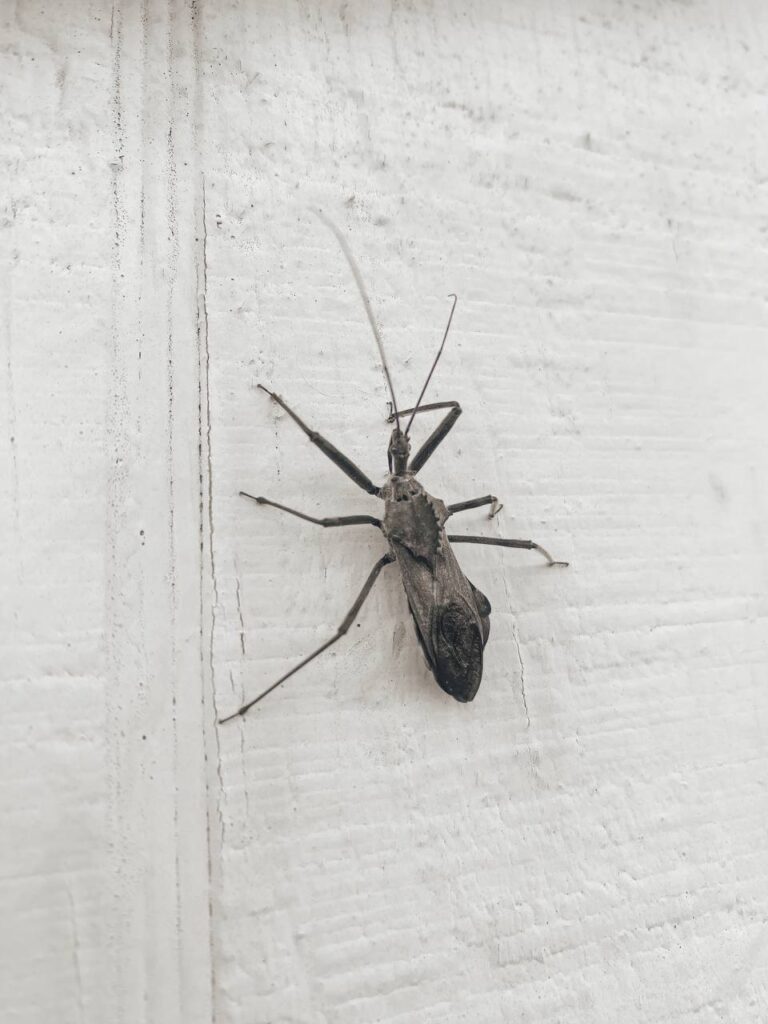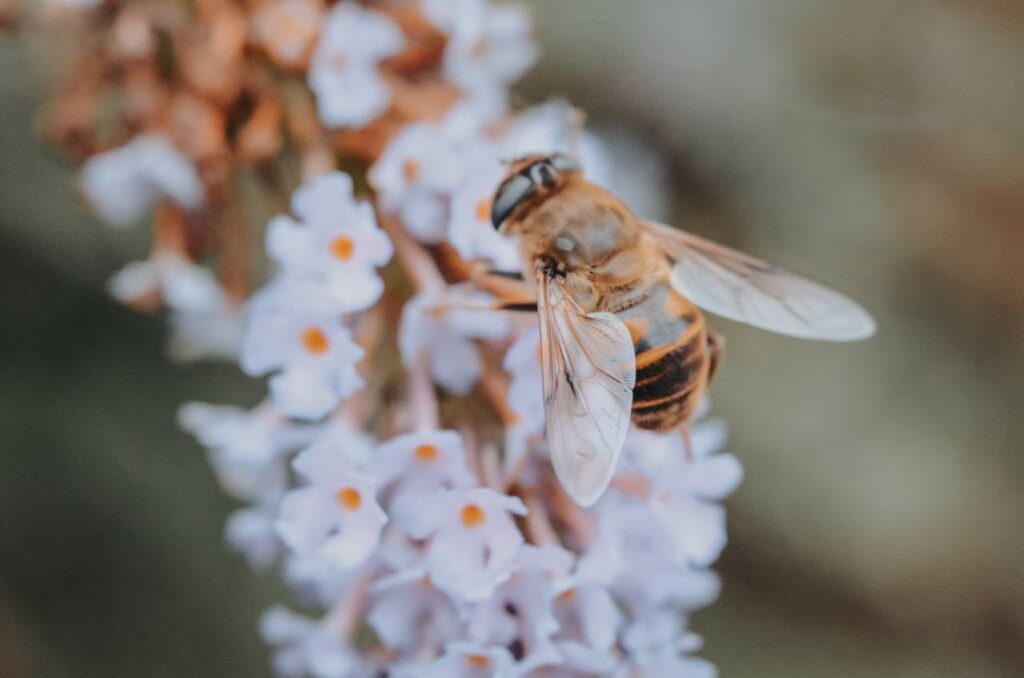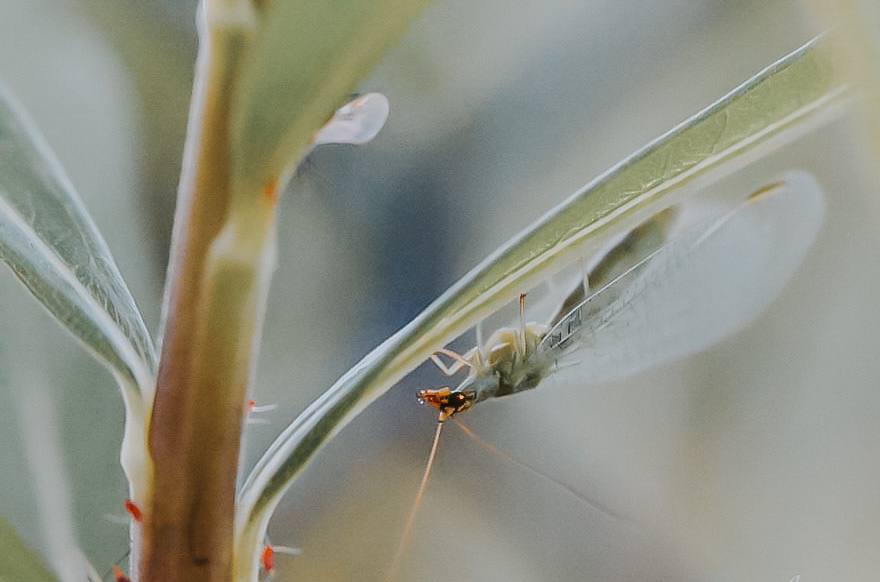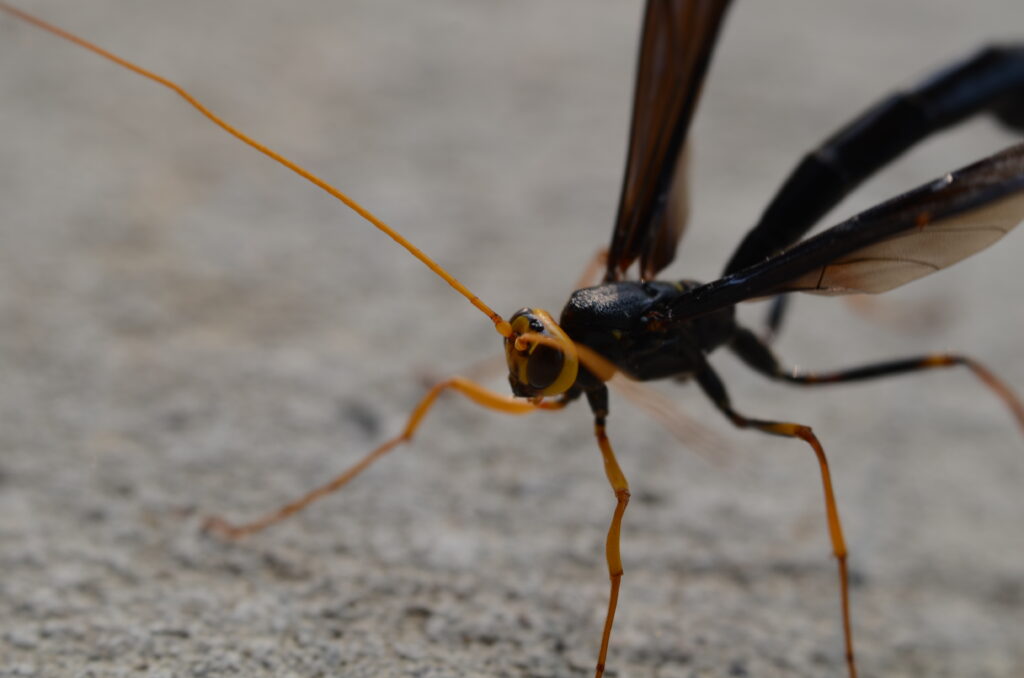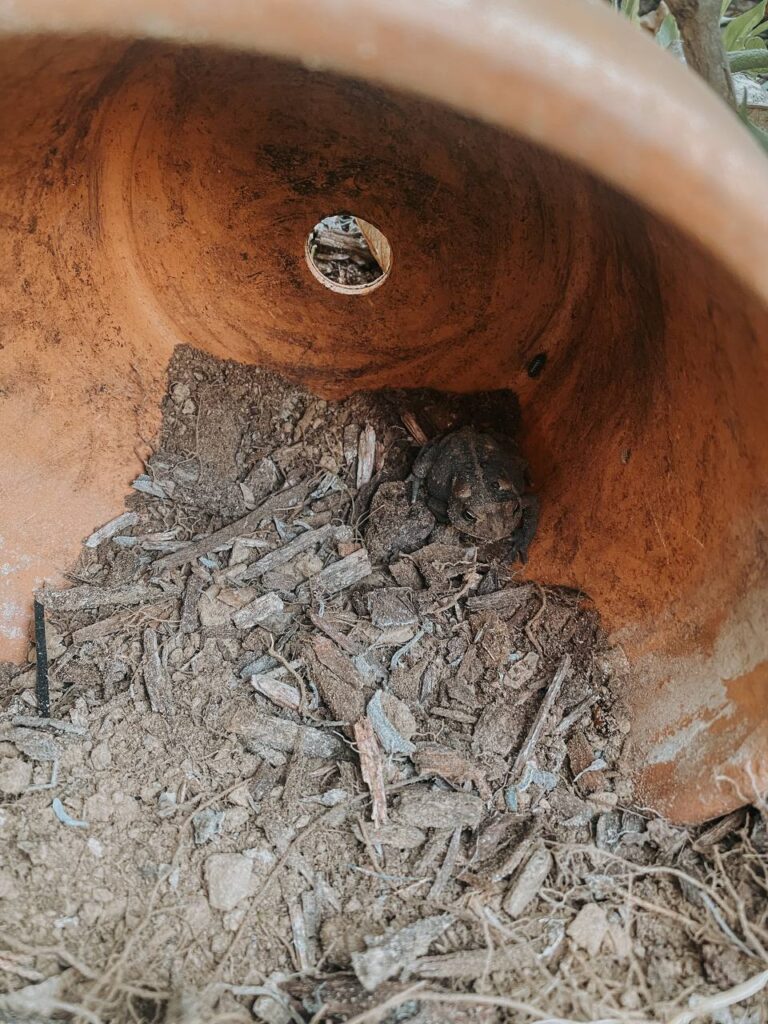The Secret Gardeners: How to Attract Beneficial Bugs Into Your Garden
Happy National Gardening Day!
Gardening requires a lot of effort to keep the plants healthy and safe from pests and diseases. Instead of using harmful chemicals that can kill bees and other helpful pollinators, you can attract beneficial insects to your garden. These bugs can help your garden to thrive by controlling the population of pests, pollinating plants, and improving soil health. In this article, we will discuss the different types of beneficial bugs and how you can invite them to your garden.
Types of Beneficial Bugs:
- Ladybugs (lady beetles): Devour aphids, mealybugs, and other soft-bodied pests. Do not mistake these for Asian Beetles. Asian Lady beetles are generally larger and have a distinctive “M” or “W” shape mark on their heads. They are more aggressive and may bite or release a foul-tasting fluid when threatened. Ladybugs lack the “M” or “W” markings and are smaller with a more elongated body shape. (See Image Below)
- Lacewings: Prey on aphids, whiteflies, and other pests. (See Image Below)
- Hoverflies: Also known as flower flies, their larvae consume aphids and other pests. (See Image Below)
- Parasitic Wasps/Black Giant Ichneumonid wasp: Lay eggs inside pest insects, killing them from the inside out.
- Ground Beetles: Feed on slugs, snails, and other pests hiding in soil and under debris.
- Praying Mantis: Capture and eat a wide range of pests, including mosquitoes and flies. (See image Below)
- Beneficial Nematodes: Microscopic worms that attack and kill pest insect larvae in the soil.
- Tachinid Flies: Parasitize and kill pest caterpillars, hornworms, and squash bugs. A beneficial bug to the garden but not a friend to the Monarch butterfly as it likes to lay eggs in the larva and the eggs will then hatch and eat the larva from the inside out often inside the chrysalis.
- Earthworms: Aerate soil and improve its structure, fertility, and water retention.
- Assassin Bugs: Assassin bugs, also known as reduviid bugs, are beneficial insects that feed on garden pests like aphids, whiteflies, and caterpillars, helping to control infestations and promote a healthy and balanced garden ecosystem. (See Photo Below)
By welcoming these beneficial bugs into your garden, you’ll create a balanced ecosystem that requires fewer pesticides and other chemicals. Encourage these good guys to stick around by providing the right plants, shelter, and water sources. Let nature do the work for you and enjoy a healthier, thriving garden.
Attracting beneficial bugs to your garden is easy and fun! Here are some tips:
– Plant a diverse range of regionally native flowers, herbs, and vegetables that provide nectar, pollen, and shelter.
-Avoid using pesticides, especially synthetic ones, which can harm beneficial bugs as well as pests.
– Create a bug hotel or insect habitat using natural materials like bamboo, straws, and wood.
-Provide a source of water, like a shallow dish or birdbath, for bugs to drink from. See HERE for water station ideas.
-Soil Health: Add a layer of mulch or compost to your soil every winter to provide a food source for beneficial insects.
-Leave some areas in your garden undisturbed, allowing beneficial bugs to nest and overwinter.
-Visit Arbico Organics to purchase organic substitutes including beneficial bugs to add to your garden for your garden needs.
By welcoming beneficial bugs into your garden, you’ll be rewarded with a healthier, more resilient, and thriving garden ecosystem. Embrace the power of beneficial bugs and watch your garden flourish!
These are some friends we have had in our garden.
